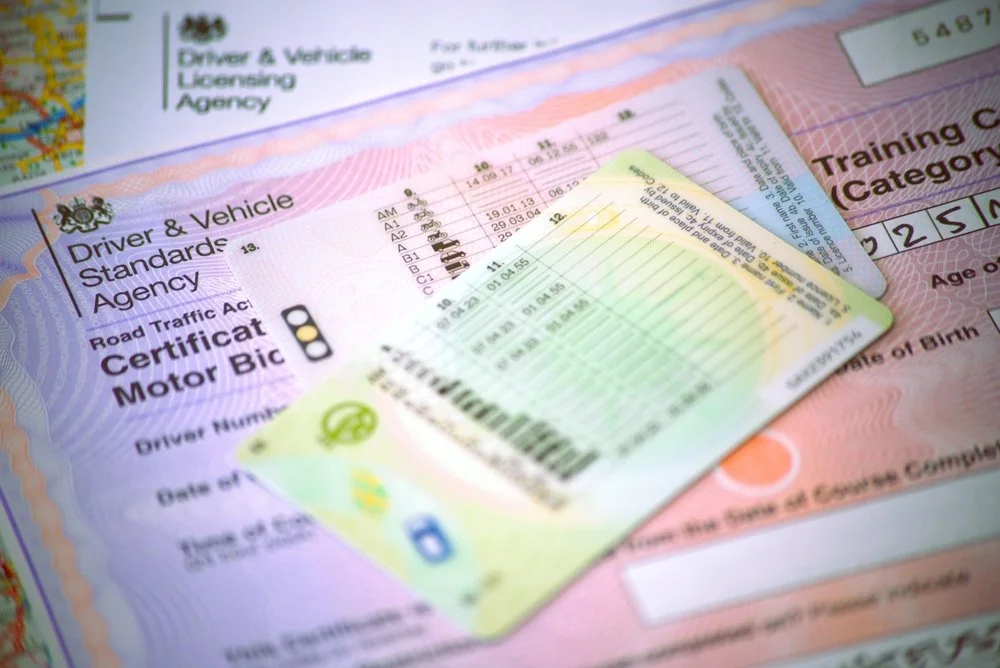Electric Car Day Arrives Earlier Than Ever: EV Drivers Effectively Driving "Free" from 3rd July 2025
Source: The Electric Car Scheme
The cost advantage of electric vehicles over traditional petrol cars has reached a new milestone in 2025, with Electric Car Day falling on July 3rd – the point when the average petrol driver has spent more on fuel than an electric car driver will for the entire year.
Analysis by The Electric Car Scheme reveals this crossover date has moved nearly two weeks earlier than 2024's July 15th, highlighting the growing financial benefits of switching to an electric vehicle through an electric car salary sacrifice scheme.
The Numbers Behind Electric Car Day
Based on the average UK driver travelling 7,400 miles annually, the cost breakdown shows a stark difference:
Petrol drivers: £1,161 annual fuel costs
EV drivers: £592 annual charging costs
Savings difference: £569 per year
This means that by July 3rd, petrol drivers have already spent more on fuel than electric car drivers will spend on charging for the entire year – effectively giving EV drivers six months of "free" driving.
The calculation is based on petrol cars averaging 38.8 miles per gallon with fuel costing £6.64 per gallon (£1.34 per litre), while electric vehicles cost an average of 8p per mile for home charging. This translates to petrol drivers spending £3.18 daily on fuel, reaching the £592 annual EV charging cost by July 3rd.
Salary Sacrifice Charging: Even Greater Savings
For drivers utilising innovative charging solutions like The Charge Scheme, the savings are even more dramatic. Through salary sacrifice for EV charging, drivers can achieve:
Home charging: Just 3p per mile (making driving "free" from March 9th)
Public charging: 11p per mile (compared to 17p per mile for petrol)
This represents the first time that even public EV charging has become cheaper than petrol, removing a significant barrier for drivers without home charging access.
Car Cost Comparison Examples
To illustrate these savings in real terms, here are some popular electric vehicles available through The Electric Car Scheme's salary sacrifice scheme:
Small Electric Cars
Dacia Spring vs Ford Fiesta 1.0 EcoBoost
Annual charging (Spring): £592 (at 8p per mile)
Annual fuel (Fiesta): £1,161 (38.8 MPG average)
Savings: £569 per year
Salary Sacrifice from £126 a month
Family Electric Cars
Tesla Model 3 vs BMW 3 Series 320i
Annual charging (Model 3): £592 (at 8p per mile)
Annual fuel (3 Series): £1,161+ (luxury cars typically less efficient)
Savings: £569+ per year
Salary Sacrifice from £318 a month
Electric SUVs
Hyundai IONIQ 5 vs Volkswagen Tiguan 1.5 TSI
Annual charging (IONIQ 5): £592 (at 8p per mile)
Annual fuel (Tiguan): £1,161+ (SUVs typically less efficient than average)
Savings: £569+ per year
Salary Sacrifice from £375 a month
These calculations are based on average UK driving of 7,400 miles annually, current fuel prices of £1.34 per litre, and standard home charging rates of 8p per mile. Savings increase significantly with EV-specific energy tariffs and salary sacrifice charging schemes.
Environmental Impact: The Carbon Crossover
The environmental benefits are equally compelling. The carbon emissions crossover occurs even earlier – on March 5th – when a petrol car has already produced more CO2 emissions than an electric vehicle will generate through both driving and power consumption for an entire year.
Based on National Grid data, electric vehicles produce approximately 47.7 grams of CO2 equivalent per mile (using the current grid mix of 149g CO2e/kWh), totalling 352kg annually. This compares to petrol vehicles producing 274.4 grams of CO2 per mile, totalling 2,030kg annually.
With the UK's electricity grid increasingly powered by renewable sources, this emissions advantage continues to grow, making the environmental case for electric vehicles even stronger.
Expert Commentary
Thom Groot, CEO and Co-Founder of The Electric Car Scheme, commented: "EV drivers will be pleased to hear that from now on, their driving is effectively free compared to the average petrol driver. This is before considering the reduced emissions and pollution in our communities and the improved health benefits.
"For anyone charging at home using our Charge Scheme, the 3p per mile cost means they've been ahead since March 9th. This scheme crucially brings the cost of driving an EV below that of running a petrol car, regardless of where or how you charge."
AA President Edmund King added: "We understand why some drivers have been hesitant about EVs due to higher upfront costs, but with prices falling and running costs plummeting, it could be the right time for a new cohort to consider if an electric car is right for them. The data shows a clear cost and environmental advantage that's hard to ignore."
Making the Switch Through Salary Sacrifice
The financial case for electric vehicles becomes even stronger through an electric car salary sacrifice scheme. With the current Benefit-in-Kind rate at just 3% for 2025/26, employees can save 20-50% on electric vehicle costs compared to traditional leasing or purchasing.
Combined with the £569 annual saving in running costs highlighted by Electric Car Day, the total cost of ownership for EVs through salary sacrifice schemes has never been more attractive.
The Methodology Behind Electric Car Day
The calculation uses robust data sources to ensure accuracy:
Average annual mileage: 7,400 miles (2019 DfT data - the last pre-pandemic year)
Petrol efficiency: 38.8 MPG average for UK cars
Fuel costs: £6.64 per gallon (£1.34 per litre) based on 2025 government figures
EV charging: 8p per mile for home charging
Daily petrol cost: £3.18, reaching £592 by July 3rd
Looking Ahead
As fuel and energy prices continue to fluctuate and EV efficiency improves, Electric Car Day is expected to move even earlier each year. The date has progressively advanced from August 1st in 2023, to July 15th in 2024, and now July 3rd in 2025.
This trend, combined with expanding charging infrastructure and improving electric car ranges, continues to strengthen the case for making the switch to electric through a company electric car scheme.
For businesses looking to offer their employees significant savings while supporting environmental goals, The Electric Car Scheme provides comprehensive solutions that make the transition to electric both affordable and straightforward.
Ready to start saving? Discover how much you could save with The Electric Car Scheme's salary sacrifice calculator and explore the best electric cars available through our programme.
Are you an employer?
BOOK A DEMOAre you an employee?
SEE AVAILABLE CARSYou might also like…
Last updated: 03/07/2025
Our pricing is based on data collected from The Electric Car Scheme quote tool. All final pricing is inclusive of VAT. All prices above are based on the following lease terms; 10,000 miles pa, 36 months, and are inclusive of Maintenance and Breakdown Cover. The Electric Car Scheme’s terms and conditions apply. All deals are subject to credit approval and availability. All deals are subject to excess mileage and damage charges. Prices are calculated based on the following tax saving assumptions; England & Wales, 40% tax rate. The above prices were calculated using a flat payment profile. The Electric Car Scheme Limited provides services for the administration of your salary sacrifice employee benefits. The Electric Car Scheme Holdings Limited is a member of the BVRLA (10608), is authorised and regulated by the FCA under FRN 968270, is an Appointed Representative of Marshall Management Services Ltd under FRN 667174, and is a credit broker and not a lender or insurance provider.
Copyright and Image Usage: All images used on this website are either licensed for commercial use or used with express permission from the copyright holders, in compliance with UK and EU copyright law. We are committed to respecting intellectual property rights and maintaining full compliance with applicable regulations. If you have any questions or concerns regarding image usage or copyright matters, please contact us at marketing@electriccarscheme.com and we will address them promptly.







